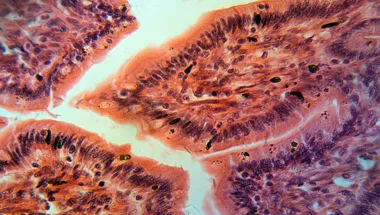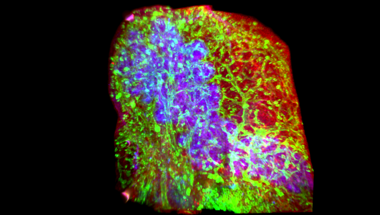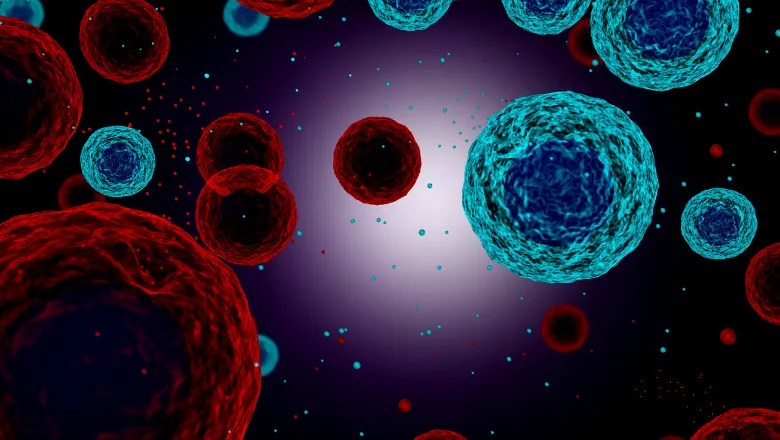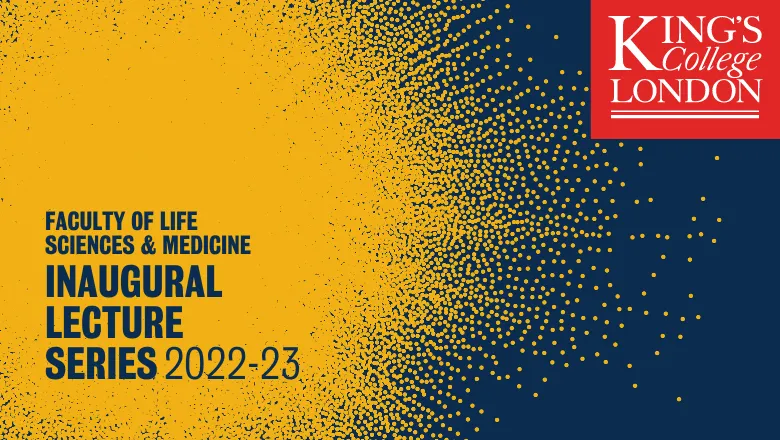Cancer & Pharmaceutical Sciences
Cancer Sciences MPhil/PhD MDRes

Associate Dean for Doctoral Studies
Professor Claire Wells' research interests:
The Wells laboratory is interested in how cancer cells are able to dissociate from the primary tumour, invade the surrounding tissue and subsequently metastasise to distal sites. Tissue invasion and migration require cancer cells to reorganise their actin cytoskeleton as well as adhere to and degrade the surrounding extracellular matrix. It is well established that cytoskeletal rearrangement, cell adhesion formation and turnover is regulated by Rho GTPases, Rho, Rac and Cdc42. PAKs are serine/threonine kinases that operate downstream of Rho GTPases to control cytoskeletal organisation and substratum adhesion. The PAK family can be sub-divided into two groups; Group 1 PAKs (1-3) and Group 2 PAKs (4-6) based on sequence homology and members of both groups are activated by growth factor signalling pathways. We use live cell imaging, biochemical and molecular approaches to investigate the role of PAK family kinases in cancer cell migration, adhesion and invasion.
The Wells Lab belongs to:

The Invasion and Metastasis Research Group is interested in how cancer cells are able to dissociate from the primary tumour, invade the surrounding tissue and subsequently metastasise to distal sites.

The Programme in GI Cancer focuses on GI tract diseases, mostly cancer and oesophago-gastric cancer. This group spans a broad field of interests, promoting collaborative working within KCL, nationally and internationally.

Understanding organ development and tissue regeneration provides a framework for elucidating disease mechanisms as well as for developing new therapeutics.

Cancer Biology

DT4Health brings together a world-class multidisciplinary team of supervisors to train future innovation leaders to articulate and materialise the Digital Twin vision in healthcare.
A collaboration between King’s and Queen Mary University of London identified amoeboid cells driving the spread of pancreatic cancer for the first time,...

A new cross-discipline collaborative study presents a novel treatment strategy for pancreatic cancer providing hope for next generation cancer treatment.


Inspiring talks from some of our brightest minds
Please note: this event has passed.

The Invasion and Metastasis Research Group is interested in how cancer cells are able to dissociate from the primary tumour, invade the surrounding tissue and subsequently metastasise to distal sites.

The Programme in GI Cancer focuses on GI tract diseases, mostly cancer and oesophago-gastric cancer. This group spans a broad field of interests, promoting collaborative working within KCL, nationally and internationally.

Understanding organ development and tissue regeneration provides a framework for elucidating disease mechanisms as well as for developing new therapeutics.

Cancer Biology

DT4Health brings together a world-class multidisciplinary team of supervisors to train future innovation leaders to articulate and materialise the Digital Twin vision in healthcare.
A collaboration between King’s and Queen Mary University of London identified amoeboid cells driving the spread of pancreatic cancer for the first time,...

A new cross-discipline collaborative study presents a novel treatment strategy for pancreatic cancer providing hope for next generation cancer treatment.


Inspiring talks from some of our brightest minds
Please note: this event has passed.